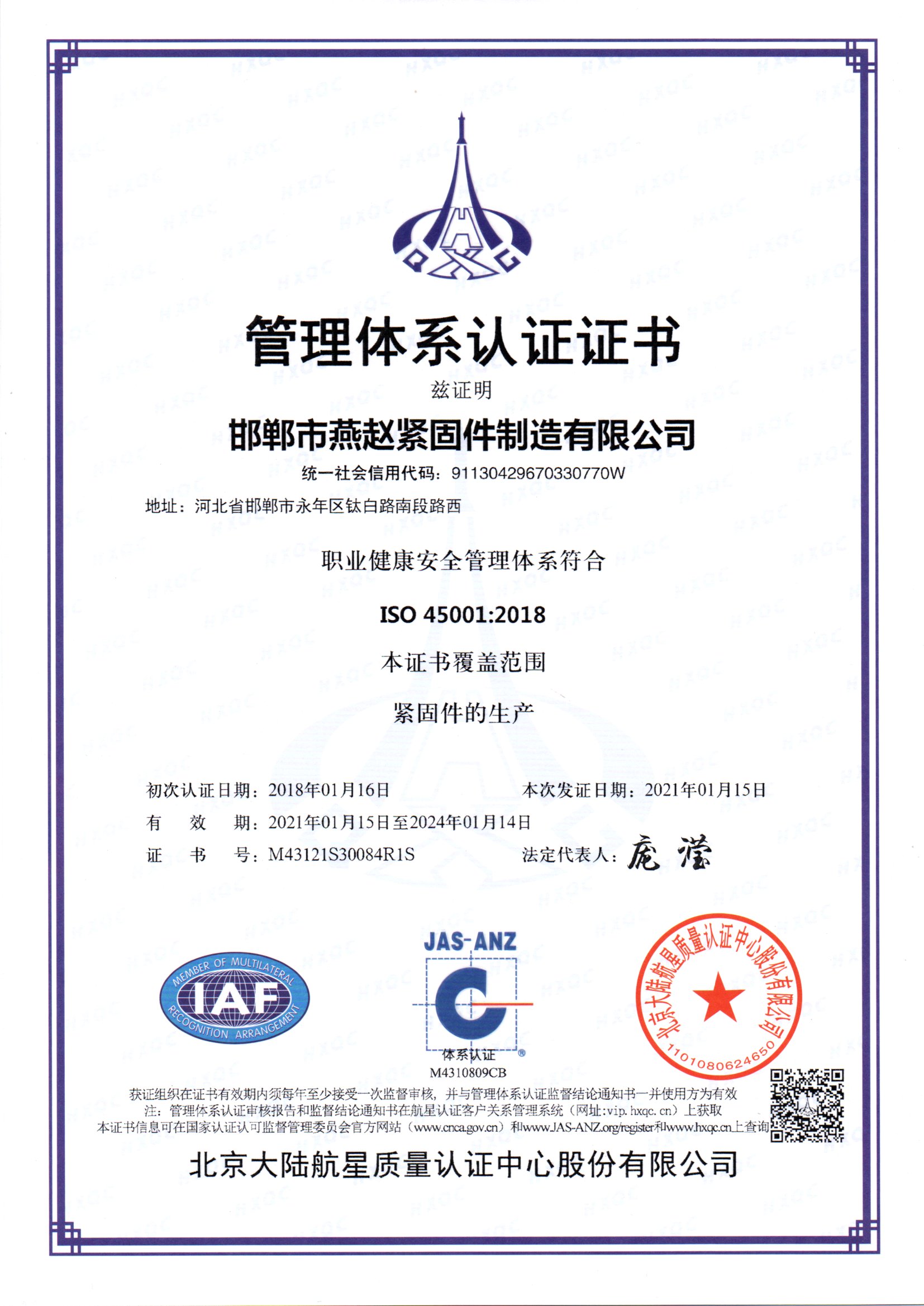High-Quality M3 Stud Bolt Manufacturers | Precision Fasteners
Aug . 30, 2024 12:55 Back to list
High-Quality M3 Stud Bolt Manufacturers | Precision Fasteners
Overview of Stud Bolt M3 Manufacturers
Stud bolts are critical components used in various industrial applications, particularly in the construction and manufacturing sectors. These fasteners are designed for high-stress environments and are essential for ensuring stability and integrity in mechanical assemblies. Among the various types of stud bolts, M3 stud bolts are notable for their specific dimensions and fastener capabilities. This article explores the landscape of M3 stud bolt manufacturers, focusing on their importance, production processes, and quality standards.
Importance of M3 Stud Bolts
M3 stud bolts have a nominal diameter of 3mm and are often used in lightweight applications, such as in electronics, automotive parts, and machinery. Their small size does not diminish their significance; rather, it emphasizes the precision required in the manufacturing process. The strength and reliability of these fasteners are paramount, as they often secure critical components that influence the overall performance of a product.
Manufacturing Process
The production of M3 stud bolts involves several key steps, including material selection, forging, machining, and surface finishing. Manufacturers typically choose high-quality materials such as stainless steel, carbon steel, or alloys that can withstand corrosion and wear.
1. Material Selection The choice of material is critical to the performance of the final product. Different applications may require different levels of tensile strength and corrosion resistance, leading manufacturers to offer a range of materials.
stud bolt m3 manufacturers

2. Forging and Machining After selecting the material, the manufacturing process begins with forging, which involves shaping the metal while it is heated. This step is crucial as it enhances the strength of the bolts. Once forged, the bolts undergo machining to achieve precise dimensions and tolerances.
3. Surface Finishing The final step involves applying finishes to improve resistance to environmental factors and enhance appearance. Processes such as coating, plating, or anodizing can be applied based on the requirements of the end application.
Quality Standards
M3 stud bolt manufacturers must adhere to stringent quality standards to ensure that their products meet the necessary performance criteria. Organizations such as ASTM (American Society for Testing and Materials) and ISO (International Organization for Standardization) provide guidelines for quality assurance processes. Manufacturers often implement rigorous testing protocols, including tensile tests, hardness tests, and corrosion resistance tests, to ensure that their products can withstand real-world applications.
The Market Landscape
The market for M3 stud bolts is competitive, with a diverse range of manufacturers operating globally. These companies often differentiate themselves through product innovation, customer service, and the ability to provide customized solutions. As industries evolve, so does the demand for advanced fastening solutions, pushing manufacturers to innovate and refine their offerings continually.
In conclusion, M3 stud bolt manufacturers play a pivotal role in ensuring the reliability and safety of a wide array of industrial applications. By adhering to high manufacturing standards and continuously improving processes, these companies not only meet but often exceed the expectations of their customers. As industries continue to grow and change, the importance of quality fasteners like M3 stud bolts will remain a key focus for manufacturers worldwide.
Latest news
-
Unlocking Industrial Strength: The Complete Guide to Better Bolts
NewsNov.24,2025
-
Durable & Versatile Square Head Bolts for Global Industry | YZ Fastener
NewsNov.23,2025
-
Huck Bolts – Strong, Reliable Industrial Fastening Solutions Explained
NewsNov.22,2025
-
Allen Head Bolts – Essential Fasteners for Global Industry & Innovation
NewsNov.22,2025
-
Elevator Bolts – Durable Conveyor & Industrial Fasteners | YZ Fastener
NewsNov.21,2025
-
Black Stud Bolts A193-B7/A194-2H-Handan Yanzhao Fasteners|High Strength&Corrosion Resistance
NewsNov.21,2025
